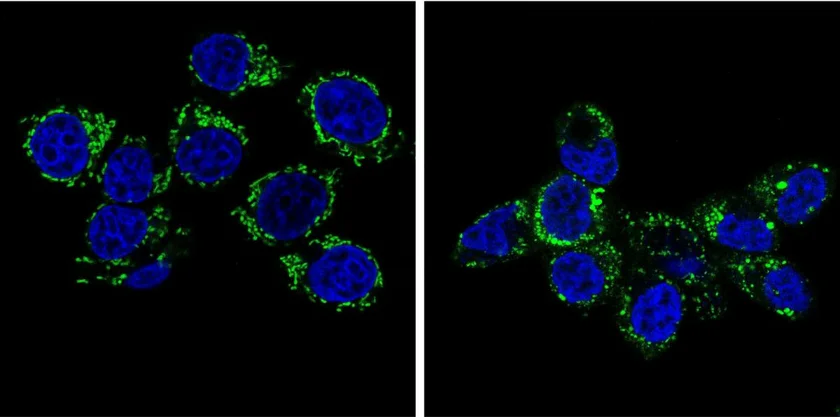A Czech research team has developed a new substance that can help in the fight against cancer. The substance, called mitoDFO, takes a new approach to slow the growth of cancer cells while not harming healthy cells. The study has been published in the scientific journal Cancer Research.
The research team comes from two labs at the Institute of Biotechnology at the Czech Academy of Sciences (AV ČR). The new anti-cancer drug they developed interferes with iron metabolism in a cell’s mitochondria, but preferentially targets cancer cells. Results have been seen both in the computer models and in animal experiments using mice.
Jaroslav Truksa, head of the AV ČR’s Laboratory of Tumor Resistance, said that cancer cells have higher iron demand to meet their metabolic needs. Blocking the process by which a cancer cell uses iron keeps the cells from proliferating.
“Iron is a critical co-factor of many metabolic enzymes, mostly in form of iron-sulfur clusters and heme, both of which are synthesized in mitochondria,” Truksa said. Heme is a precursor of hemoglobin, a part of red blood cells.
“Thus, interfering with mitochondrial iron metabolism of cancer cells affects their ability to proliferate and metastasize, and eventually induces their death,” Truksa said.
MitoDFO, which is short for mitochondrially targeted deferoxamine, takes advantage of a distinct characteristic of the mitochondria in a cancer cell and so it can target cancer cells while sparing non-malignant ones, which is an important feature of the compound. Many cancer treatments affect both cancerous cells and healthy cells, and while they reduce the cancer also negatively affect healthy organs and tissues.
The new compound did not alter the iron metabolism in healthy cells in mice, but preferentially targeted cancer cells.
The function of the compound is quite technical, according to AV ČR. At the molecular level, mitoDFO interferes with the mitochondria’s ability to make iron-sulfur clusters and heme, which leads to “inhibition of mitochondrial respiration, disassembly of mitochondrial respiratory super-complexes and generation of reactive oxygen species.” Put a bit more simply it causes the mitochondria in a cancer cell to malfunction and then, in a process called mitophagy, the cell removes the malfunctioning mitochondria and as a result the cell becomes weakened and dies.
The research included also cooperation with AV ČR’s Molecular Therapy Group and the Laboratory of Cancer Cell Invasion, a part of the Faculty of Science of Charles University. The initial phase of the project was also supported by the private company Smart Brain.

“We gladly accepted the invitation of Jaroslav Truksa and colleagues from the Institute of Biotechnology to participate in research on anti-cancer effects of the very interesting molecule - mitoDFO,” Jan Brábek, head of Charles University's Laboratory of Cancer Cell Invasion, said. “In our research, we found that mitoDFO is a very effective inhibitor of cancer cell migration and invasiveness,” he added.
The cell migration effects seen in 3D models were later reflected in mice, where the spreading of the cancer was greatly reduced, he said.
Brábek said the research helps to highlight the interconnection of expertise within the Biotechnology and Biomedicine Center (BIOCEV), which brings together six research branches of the Academy of Sciences and two faculties of Charles University.
More testing will take place before clinical trials can start. This is exclusively Czech research, and the scientists together with SmartBrain have already filed for a patent in the European Union and in the U.S.












 Reading time: 3 minutes
Reading time: 3 minutes 





















